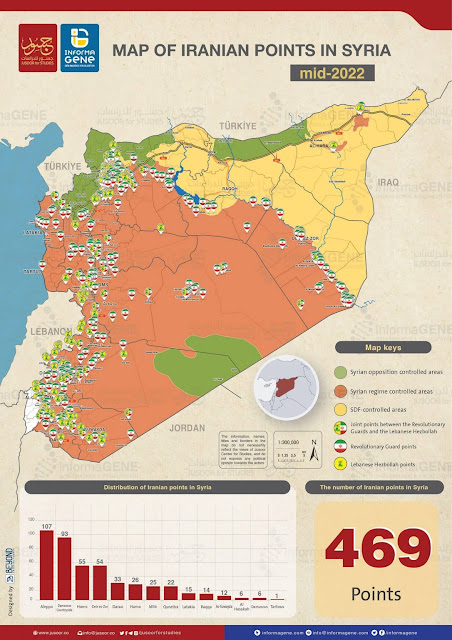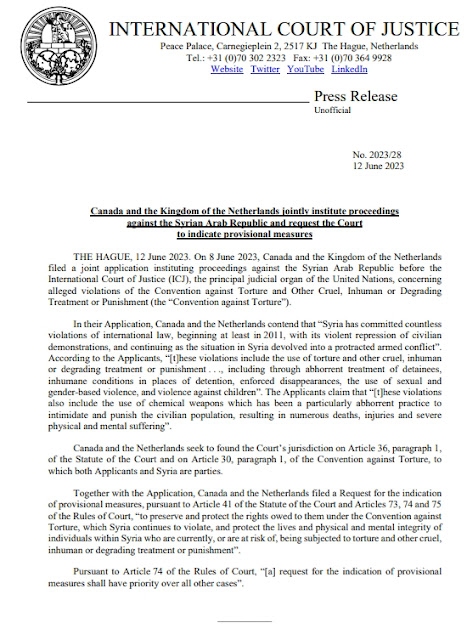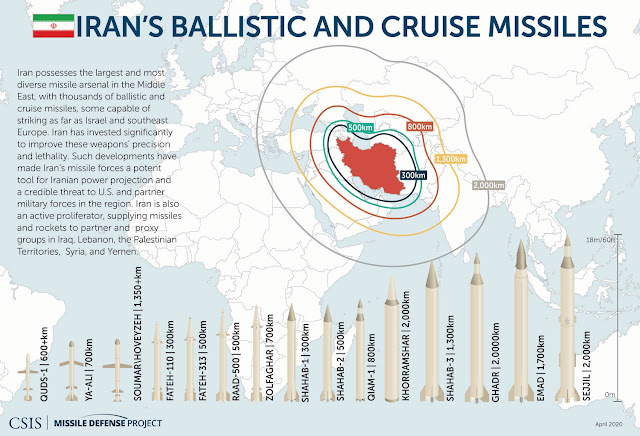U.S. Envoy Outlines Iraq's Compact with America
Op-ed by Ambassador Zalmay Khalilzad
Iraq's Compact With America
How we'll beat the insurgency and create a functioning nation
BY ZALMAY KHALILZAD
The Wall Street Journal, August 7, 2005
While Iraq has elected a transitional government and is making progress in drafting a constitution, it faces a clever and brutal terrorist threat and the profound challenge of overcoming the political, social and economic legacy of Saddam Hussein's rule. In the past two weeks, I have discussed with Iraqi leaders a set of ideas about what is needed to set Iraq on the right trajectory. We have agreed on seven points.
1. Iraq needs a "national compact" enshrined in its constitution. One of the biggest challenges facing Iraqis is overcoming the loss of trust among its communities. This underlies current political and sectarian tensions. In part, it underlies the insurgency. Fostering hatred was central to Saddam's rule. His was a personal tyranny, rooted in a narrow clique, not in a wider community. To overcome this dark legacy, Iraqis need to build bridges, not burn them. Individuals who committed crimes should be punished, but no community should be marginalized because of the deeds of Saddam.
This process of forging a national compact begins with an agreement on a new constitution; but it does not end there. If Iraq is to succeed, it needs to build truly national institutions. Iraq's institutions were corrupted by Saddam and destroyed at the end of the war. Building them anew is not easy. It is vital that Iraqis build institutions that all communities can have confidence in--that are not instruments of revenge or fiefdoms of patronage of one group or another.
2. The Iraqi government and the coalition will work together to isolate and defeat the terrorists and Baathists who want the restoration of the old regime. The enemies of Iraq are the terrorists led by Abu Musab al-Zarqawi and hardcore Baathists, who seek to pull more Iraqis into their networks. Choosing this path would be a fatal decision for Iraqis in central and western Iraq. Protracted violence would lead their most talented people to go abroad, destroy educational opportunities for their children, make reconstruction difficult, and create fertile ground for an extremism that would impoverish the region.
There is a legitimate alternative: joining in a national compact enshrined in a constitution that protects the rights of all communities. The U.S. is committed to supporting Iraqis who seek to realize this vision. Many in central and western Iraq want to have a place in the new Iraq, and are seeking a political role at great risk to themselves. Some have lost their lives in this cause. America should pay homage to the Iraqis who were recently killed because they were working on the constitution.
Our strategy is to work through political means to mobilize the people of central and western Iraq to support the new democratic order. We will embrace those in this region who choose to join in the national compact, and will work to provide security for them. At the same time, the U.S. is working with the Iraqi government to build up Iraqi security forces. These are growing in numbers and becoming more capable. With the cooperation of the people and with more robust Iraqi forces, the Iraqi government and the U.S. will use highly targeted military force to capture or eliminate the terrorists who irreconcilably oppose the new order.
This is a strategy first to win over the people, and then isolate and destroy the enemy. As we implement this, the coalition will hand over control of specific areas to Iraqi forces and withdraw its units from these areas. After this transfer occurs in more and more areas, there will be a smaller need for coalition forces and elements of the Multi-National Force will leave Iraq.
3. The U.S. and the Iraqi government are seeking to encourage the region's leaders to address problems in a new cooperative spirit and to pressure those who continue to foment instability. Some neighbors are engaged in unhelpful activities. Terrorists are moving into Iraq through Syria. Leaders of Baathist insurgents reside there. Terrorists and insurgents are trained in, and funded through, Syria. Syrian government media broadcast anti-Iraq propaganda. The Syrian government must take action to halt these activities or risk new pressure.
Iran is working along two contradictory tracks. On the one hand, Tehran works with the new Iraq. On the other, there is movement across its borders of people and materiel used in violent acts. The U.S. welcomes good relations between Iraq and all its neighbors, but activities inconsistent with such relations must stop.
4. The U.S. will work with the Iraqi government to improve the capacity of Iraqi ministries. The U.S. is supporting projects to rebuild an infrastructure that was collapsing under Saddam. It will also work with Iraqi ministries to ensure that they have the capacity to operate and manage these projects as they come on line. In cooperation with the government, the U.S. is also decentralizing part of the reconstruction effort by working with provincial governments to fund projects that meet local priorities.
5. We will seek to increase economic opportunity. Not enough emphasis has been placed on developing the private sector. The U.S. will work with Iraqi political and business leaders to do more, including expansion of credit, increasing the use of Iraqi contractors in reconstruction, and opposing corruption.
6. The U.S. will work with the Iraqi government to set the conditions for a successful election--with full participation of all communities. We are seeing positive signs, as groups that did not participate in the elections in January gear up for the next round. The U.S. and the Iraqi government will develop an integrated plan for election security. We will cooperate on a multilateral basis with the U.N. and other friends of Iraq to facilitate election planning and logistics.
7. I will be engaging across the board to assist the Iraqi government to achieve our common objectives and mobilize more support by other countries. The leaders of Iraq and I have agreed on a new way of working, in which all our efforts are integrated. We have launched five joint task forces to move forward on key issues, including efforts to implement joint plans on overall security, coordinating reconstruction, managing fiscal demands, infrastructure security, and resolving detainee issues. Iraqis need help during this period of transition. The U.S. has taken up this challenge. At the same time, we will work with other countries in order to expand the numbers that are major stakeholders in building the new Iraq. Success for Iraq is success for the U.S.--and, indeed, for the world.
(Mr. Khalilzad is U.S. ambassador to Iraq.)
Op-ed by Ambassador Zalmay Khalilzad
Iraq's Compact With America
How we'll beat the insurgency and create a functioning nation
BY ZALMAY KHALILZAD
The Wall Street Journal, August 7, 2005
While Iraq has elected a transitional government and is making progress in drafting a constitution, it faces a clever and brutal terrorist threat and the profound challenge of overcoming the political, social and economic legacy of Saddam Hussein's rule. In the past two weeks, I have discussed with Iraqi leaders a set of ideas about what is needed to set Iraq on the right trajectory. We have agreed on seven points.
1. Iraq needs a "national compact" enshrined in its constitution. One of the biggest challenges facing Iraqis is overcoming the loss of trust among its communities. This underlies current political and sectarian tensions. In part, it underlies the insurgency. Fostering hatred was central to Saddam's rule. His was a personal tyranny, rooted in a narrow clique, not in a wider community. To overcome this dark legacy, Iraqis need to build bridges, not burn them. Individuals who committed crimes should be punished, but no community should be marginalized because of the deeds of Saddam.
This process of forging a national compact begins with an agreement on a new constitution; but it does not end there. If Iraq is to succeed, it needs to build truly national institutions. Iraq's institutions were corrupted by Saddam and destroyed at the end of the war. Building them anew is not easy. It is vital that Iraqis build institutions that all communities can have confidence in--that are not instruments of revenge or fiefdoms of patronage of one group or another.
2. The Iraqi government and the coalition will work together to isolate and defeat the terrorists and Baathists who want the restoration of the old regime. The enemies of Iraq are the terrorists led by Abu Musab al-Zarqawi and hardcore Baathists, who seek to pull more Iraqis into their networks. Choosing this path would be a fatal decision for Iraqis in central and western Iraq. Protracted violence would lead their most talented people to go abroad, destroy educational opportunities for their children, make reconstruction difficult, and create fertile ground for an extremism that would impoverish the region.
There is a legitimate alternative: joining in a national compact enshrined in a constitution that protects the rights of all communities. The U.S. is committed to supporting Iraqis who seek to realize this vision. Many in central and western Iraq want to have a place in the new Iraq, and are seeking a political role at great risk to themselves. Some have lost their lives in this cause. America should pay homage to the Iraqis who were recently killed because they were working on the constitution.
Our strategy is to work through political means to mobilize the people of central and western Iraq to support the new democratic order. We will embrace those in this region who choose to join in the national compact, and will work to provide security for them. At the same time, the U.S. is working with the Iraqi government to build up Iraqi security forces. These are growing in numbers and becoming more capable. With the cooperation of the people and with more robust Iraqi forces, the Iraqi government and the U.S. will use highly targeted military force to capture or eliminate the terrorists who irreconcilably oppose the new order.
This is a strategy first to win over the people, and then isolate and destroy the enemy. As we implement this, the coalition will hand over control of specific areas to Iraqi forces and withdraw its units from these areas. After this transfer occurs in more and more areas, there will be a smaller need for coalition forces and elements of the Multi-National Force will leave Iraq.
3. The U.S. and the Iraqi government are seeking to encourage the region's leaders to address problems in a new cooperative spirit and to pressure those who continue to foment instability. Some neighbors are engaged in unhelpful activities. Terrorists are moving into Iraq through Syria. Leaders of Baathist insurgents reside there. Terrorists and insurgents are trained in, and funded through, Syria. Syrian government media broadcast anti-Iraq propaganda. The Syrian government must take action to halt these activities or risk new pressure.
Iran is working along two contradictory tracks. On the one hand, Tehran works with the new Iraq. On the other, there is movement across its borders of people and materiel used in violent acts. The U.S. welcomes good relations between Iraq and all its neighbors, but activities inconsistent with such relations must stop.
4. The U.S. will work with the Iraqi government to improve the capacity of Iraqi ministries. The U.S. is supporting projects to rebuild an infrastructure that was collapsing under Saddam. It will also work with Iraqi ministries to ensure that they have the capacity to operate and manage these projects as they come on line. In cooperation with the government, the U.S. is also decentralizing part of the reconstruction effort by working with provincial governments to fund projects that meet local priorities.
5. We will seek to increase economic opportunity. Not enough emphasis has been placed on developing the private sector. The U.S. will work with Iraqi political and business leaders to do more, including expansion of credit, increasing the use of Iraqi contractors in reconstruction, and opposing corruption.
6. The U.S. will work with the Iraqi government to set the conditions for a successful election--with full participation of all communities. We are seeing positive signs, as groups that did not participate in the elections in January gear up for the next round. The U.S. and the Iraqi government will develop an integrated plan for election security. We will cooperate on a multilateral basis with the U.N. and other friends of Iraq to facilitate election planning and logistics.
7. I will be engaging across the board to assist the Iraqi government to achieve our common objectives and mobilize more support by other countries. The leaders of Iraq and I have agreed on a new way of working, in which all our efforts are integrated. We have launched five joint task forces to move forward on key issues, including efforts to implement joint plans on overall security, coordinating reconstruction, managing fiscal demands, infrastructure security, and resolving detainee issues. Iraqis need help during this period of transition. The U.S. has taken up this challenge. At the same time, we will work with other countries in order to expand the numbers that are major stakeholders in building the new Iraq. Success for Iraq is success for the U.S.--and, indeed, for the world.
(Mr. Khalilzad is U.S. ambassador to Iraq.)


